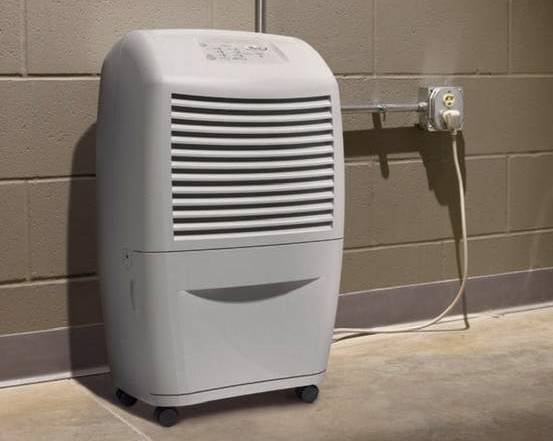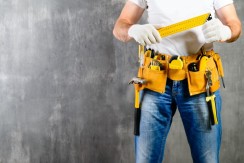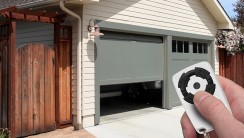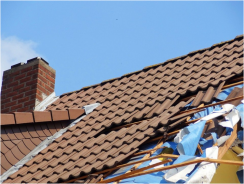
Can dehumidifiers help wet basements?
A red flag for potential buyers is walking down into a basement and discovering that it is damp or that it has visible water damage.
Wet basements can be a major concern. It is a sign that a house is prone to flooding, which can be expensive to recover from. Water damage can also cause walls and floors to rot and mold to develop. Plus, it can also damage any items that are stored in the basement.
Not to mention, wet basements usually smell like mildew or mold.
If you’re selling a home with a wet basement, you should always disclose that in your listing. You should also start trying to make repairs to minimize the damage from the water. Depending on the reason why a basement is wet, it can be somewhat easy to repair.
Keep in mind that a wet basement will lower the value of your house, so trying to find a solution and disclosing the problem is of your best interest.
Waterproof your basement
If your basement is moist after it rains, but not actively flooding, that is a sign that your basement walls are absorbing water from the soil or that there is a crack somewhere. Not only does this make your walls feel moist, but it can also increase the humidity levels in your basement.
First, try to figure out where the water is coming from. If you have cracks in your walls or around window wells, repair them. Once you have taken care of any leaky spots, apply a waterproof sealant paint to your walls. Waterproof sealant paint comes in a variety of colors.
Install a sump pump
If you have water coming into your basement when it rains or snows, something you may want to invest in is a sump pump. Surface water sometimes puddles against exterior walls and leaks into basements. A sump pump can help prevent a basement from flooding.
A drainage system directs water to the sump pit. Once it reaches the pit, the sump pump will pump the water away from your house. This helps your basement stay dry. Even if you don’t have to regularly use your sump pump, it is still a good idea to have one if your basement ever receives any water.
Install a draining system
If water is pooling up against your house when it rains, you should also consider an exterior draining system. Gutters around your house help to catch rain as it falls and direct it out towards your yard instead of towards your house.
If you already have an exterior draining system, make sure to clean it regularly. Over time, leaves and other debris can clog your gutters and make it harder for water to drain properly. You should also make sure that the water is being directed far enough away from your house. If needed, you can direct the downspout into a deeper drain.
Use a dehumidifier
Another way to help a wet basement is with dehumidifiers. Dehumidifiers alone cannot completely dry out a basement, but if you have a sump pump, you are going to want a dehumidifier as well. Dehumidifiers help remove moisture from the air, which helps cut down on humidity levels in your basement.
Running a dehumidifier in a wet basement can help lower the chances of mold and mildew from developing. It can also help the basement smell less musty. Dehumidifiers come in a variety of sizes. While smaller dehumidifiers work well in bedrooms, you are going to want a larger one for your basement.
Fix any damage
If your basement has any rotting wood or stained carpet from previous water damage, you’re going to want to repair that damage before trying to sell your home. This could mean pulling up existing flooring or replacing baseboards. If you’re pulling up carpet, consider putting down laminate flooring instead. It is easier to clean up in the event of floods.
Even if you repair damage in advance, you should still disclose the fact your basement sometimes leaks. If you repair the damage and don’t disclose it, and the basement floods again in the future, the new homeowners can sue you for withholding information.
Final thoughts
Trying to sell a house with a wet basement can be challenging. You should try to actively try to repair the damage and take the necessary steps to dry out the basement. However, even if you’re selling the house in as-is condition, you’ll still need to disclose any moisture problems you’ve had in the past.











Author
Homesgofast com
Homesgofast.com is an international real estate portal and news source for Google news. Publishing international real estate, finance, homes and travel-related news and blogs for a targeted audience since 2002. Each news item is circulated to thousands of potential readers each day and is also available to the millions of people who sign up for Google news alerts. Find homes offered for sale and to rent direct from owners and some of the best real estate agents from over 35 countries